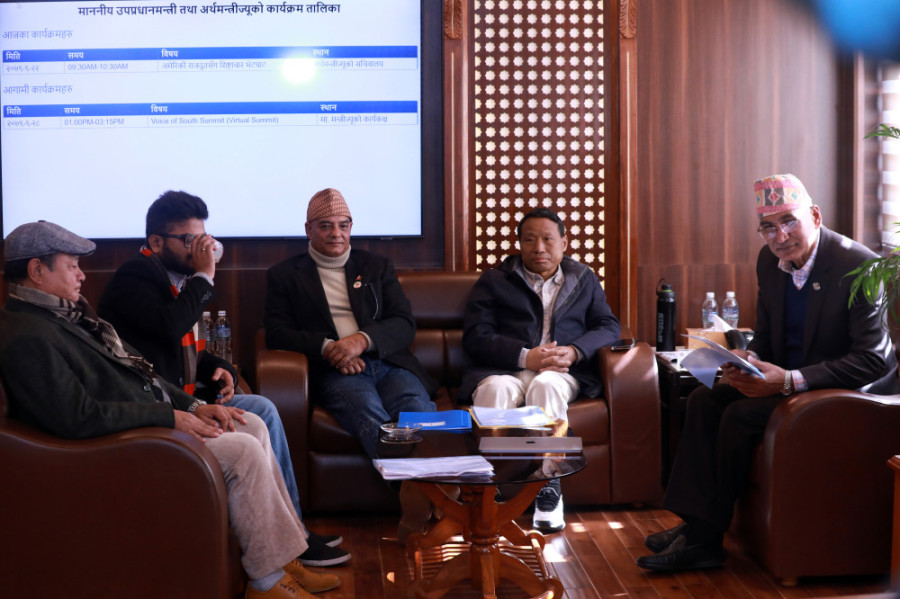National
Ruling coalition trains its focus on service delivery
Parties in power pledge to issue citizenship in hassle-free way, curb corruption, and mark Prithvi Jayanti on Paush 27.
Post Report
The common minimum programme, a document outlining the coalition government’s primary objectives, a draft of which was circulated on Friday, has focused on easing the delivery of government services. The document appears to have also addressed key concerns of the member parties of the ruling alliance.
The draft of the common minimum programme prepared by a task-force led by Finance Minister Bishnu Paudel promises a time card system for speedy delivery of government services.
The programme states that all eligible people will get Nepali citizenship without hassles.
“Within a month of giving full shape to the Cabinet, the government will end the situation whereby children of Nepali citizens are deprived of citizenship, solve other citizenship-related issues through the first session of parliament, and distribute national identity cards to all Nepalis within a year,” reads the document.
The document emphasises resolution of decades-old citizenship problems with Prime Minister Pushpa Kamal Dahal trying to further strengthen relations with Madhesh-based political parties. The Janata Samajbadi Party of Upendra Yadav, and the Janamat Party led by CK Raut are in the ruling coalition. While Raut’s party has already joined the government, Janata Samajbadi has yet to nominate its ministers.
Coalition partners have also agreed to declare a public holiday on the birth anniversary of King Prithvi Narayan Shah on Paush 27 (January 11), which was among the major conditions of the pro-monarchy Rastriya Prajatantra Party (RPP) to join the government.
The ruling parties have committed to giving priority to good governance, as they promise to ensure corruption control by empowering regulatory bodies including the Commission for Investigation of Abuse of Authority.
Corruption control and good governance were among the major issues of the Rastriya Swatantra Party, the third-largest in the coalition. Deputy Prime Minister and Home Minister Rabi Lamichhane, who leads the party, has been strongly raising these demands.
The draft of the programme says the public will be freed from the trouble of standing in queues for government services through the introduction of online systems and implementation of time cards.
Similarly, the government has promised to bring the much-touted national identity cards into use to eliminate the hassle of time and again submitting multiple documents including citizenship at different offices. Moreover, the features of the ‘Nagarik App’ will be enhanced to provide all types of government services digitally.
The ruling parties have also promised to make necessary amendments to laws and policies to boost good governance and effective delivery of services. They have vowed to restructure various state institutions that have become inefficient due to ‘excessive politicisation’ and make them more competent and professional.
Policy and structural reforms; strengthening of democracy, good governance and quality service; sustainable economic development; promotion of entrepreneurship, domestic production and employment; and quality education are some of the key promises made in the 19-point programme.
Likewise, transformation of agriculture; energy generation; dignified labour and social security; improvement in public transport and road infrastructure; affordable and reliable communication services; resolution of the problem of landlessness; addressing climate change issues; women’s empowerment; and conclusion of the peace process and transitional justice issues are the other promises made in the programme.




 14.12°C Kathmandu
14.12°C Kathmandu













